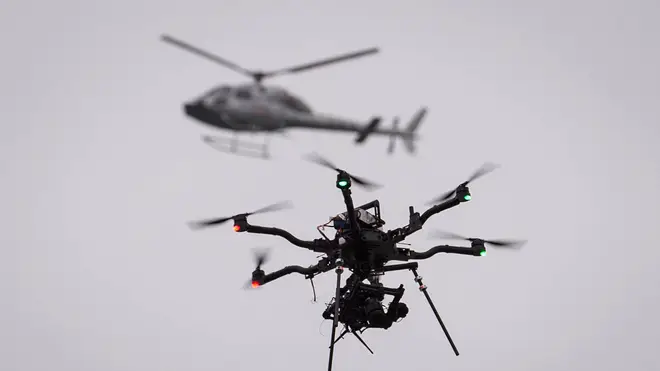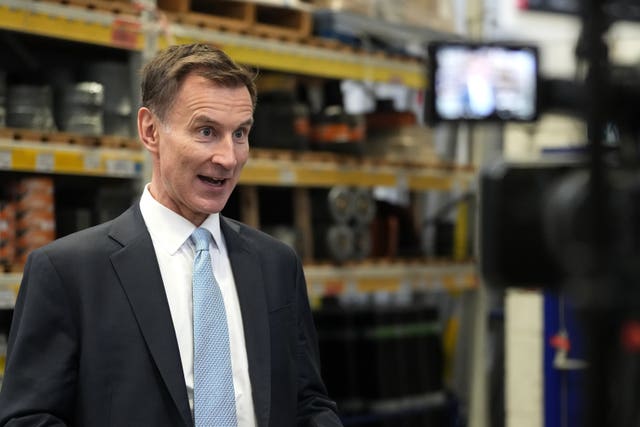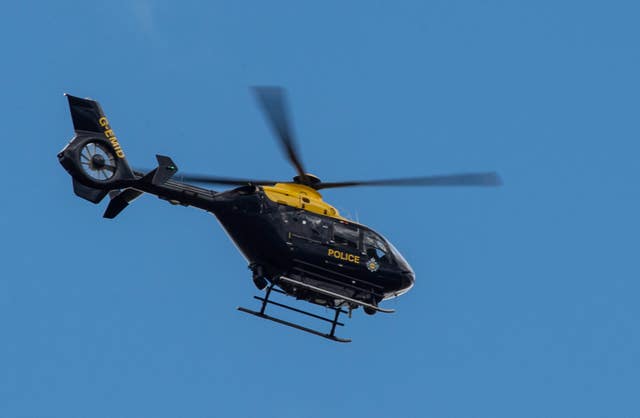
Ian Payne 4am - 7am
6 March 2024, 18:24

Plans were set out for £230 million to support new technology that also includes increased use of video calls.
Police use of drones as first responders was one of the more eye-catching measures that will affect law enforcement in the Budget.
Chancellor Jeremy Hunt said he would prioritise schemes that will save money in the next five years, pledging £230 million for new technology including increased used of video calls and drones.
Plans for trials where drones are used as first responders to the scene of emergencies were unveiled by police chiefs in November, with the firsts tests due to be carried out in Norfolk in the coming months.
If testing is successful, the devices would be stationed on buildings and operated remotely to be sent first to scenes to give police early information.

While initial trials, under a scheme dubbed Project Eagle X, will take place in Norfolk, further trials are planned for Thames Valley Police and Hampshire.
Norfolk is one force in England and Wales that has limited access to the helicopters flown by the National Police Air Service because they are stationed so far away.
Police in England and Wales are working with officers in the US as similar trials have taken place in San Diego.
The hope is the drone would give more accurate information on the potential scale of an incident that a shocked member of the public who has called 999, and get there more quickly than a helicopter.

Currently, police forces in England and Wales use about 400 drones that cannot be flown out of the operator’s line of sight.
Plans are in place to amend those rules to allow police operators to do so, with initial trials taking place in areas with closed-off airspace later this year.
Alan Pughsley, who worked on a Home Office-commissioned national review of policing productivity, said technological advances could help with tasks including redacting documents for use in court, and Rapid Video Response, where officers speak to victims via video call instead of attending in person.
He said: “We’re pleased the work of our independent team has highlighted the huge time savings that could be achieved through better use of technology; time that could be spent attending more burglaries, more cases of domestic abuse, more incidents of antisocial behaviour.
“The Policing Productivity Review has found that technology can enable the acceleration of existing tasks – such as redacting documents for use in court – and provide less resource-intensive ways of delivering services, for example by Rapid Video Response; something that has been well-received by victims of domestic abuse.
“Around 97% of today’s science and technology investment in policing is spent on maintaining existing systems.
“There is a balance to be struck between ensuring these tools are fit for purpose and making the most of new innovations.
“Policing cannot afford to fall behind in this area, which is why today’s funding announcement is so important.”
The Chancellor also said £170 million would be used to fund “non-court resolution, reduce reoffending and digitise the court process”.
And he pledged £75 million to roll out violence reduction units and hotspot policing across the country.
Mr Hunt said the spending review would prioritise schemes that would make annual savings within the next five years, equal to the total cost of the measure.
National Police Chiefs’ Council chairman Gavin Stephens said: “The policing productivity review demonstrated the breadth of work our officers and staff undertake on a daily basis and highlighted the importance of the greater adoption of science and technology to boost efficiency and free up officers’ time.
“We welcome the announced investment in today’s budget and will examine it in detail to ensure additional funding has the maximum impact and supports us in tackling criminality, ensuring the safety of all communities.
“The Office for Budget Responsibility assumes non-protected departments, including policing, will see a real-terms cut of 2.3% by 2028/29, which they acknowledge as challenging.
“All police forces continue to face significant financial challenges and, to ensure that these investments are fully utilised, this must be underpinned by stronger long-term financial resilience.”